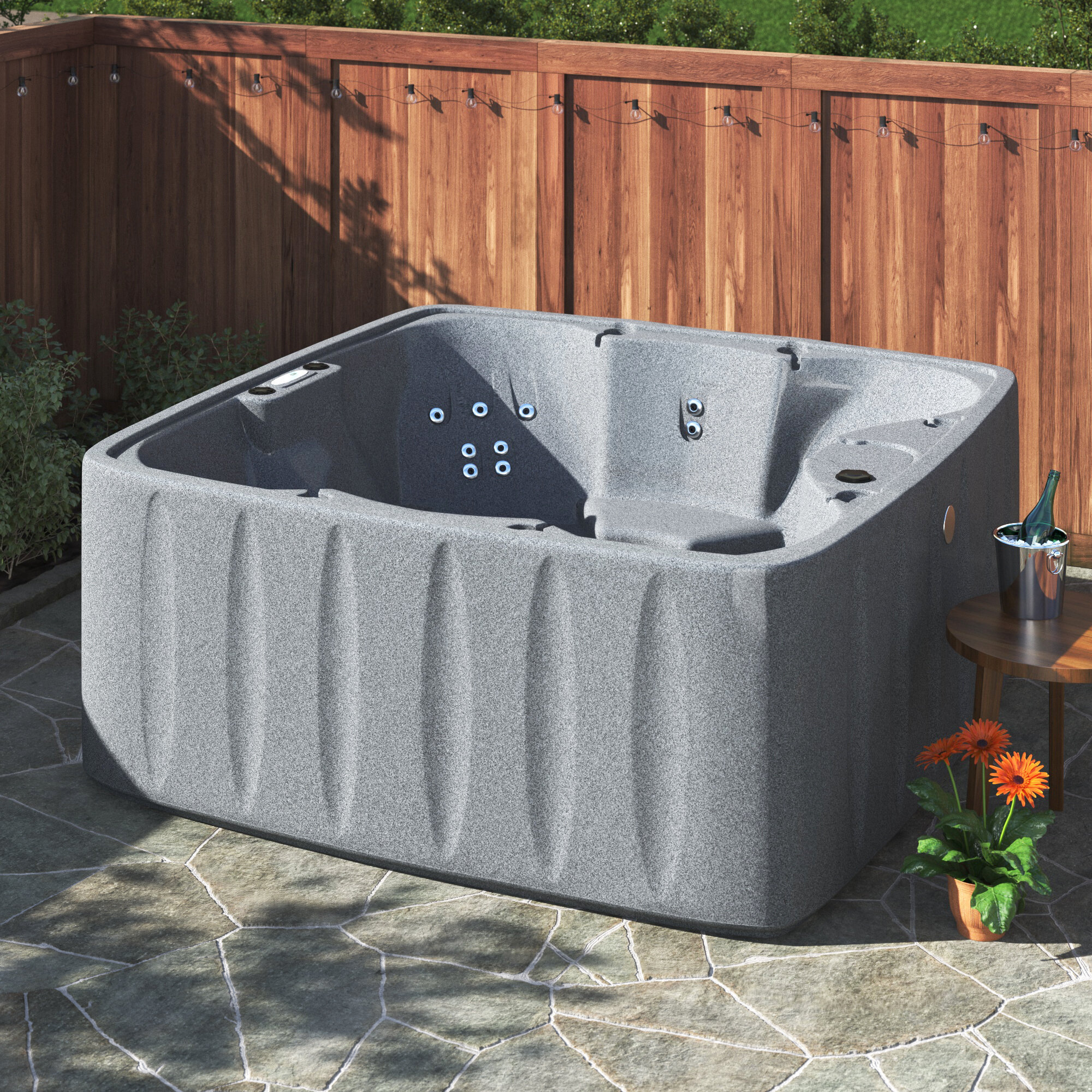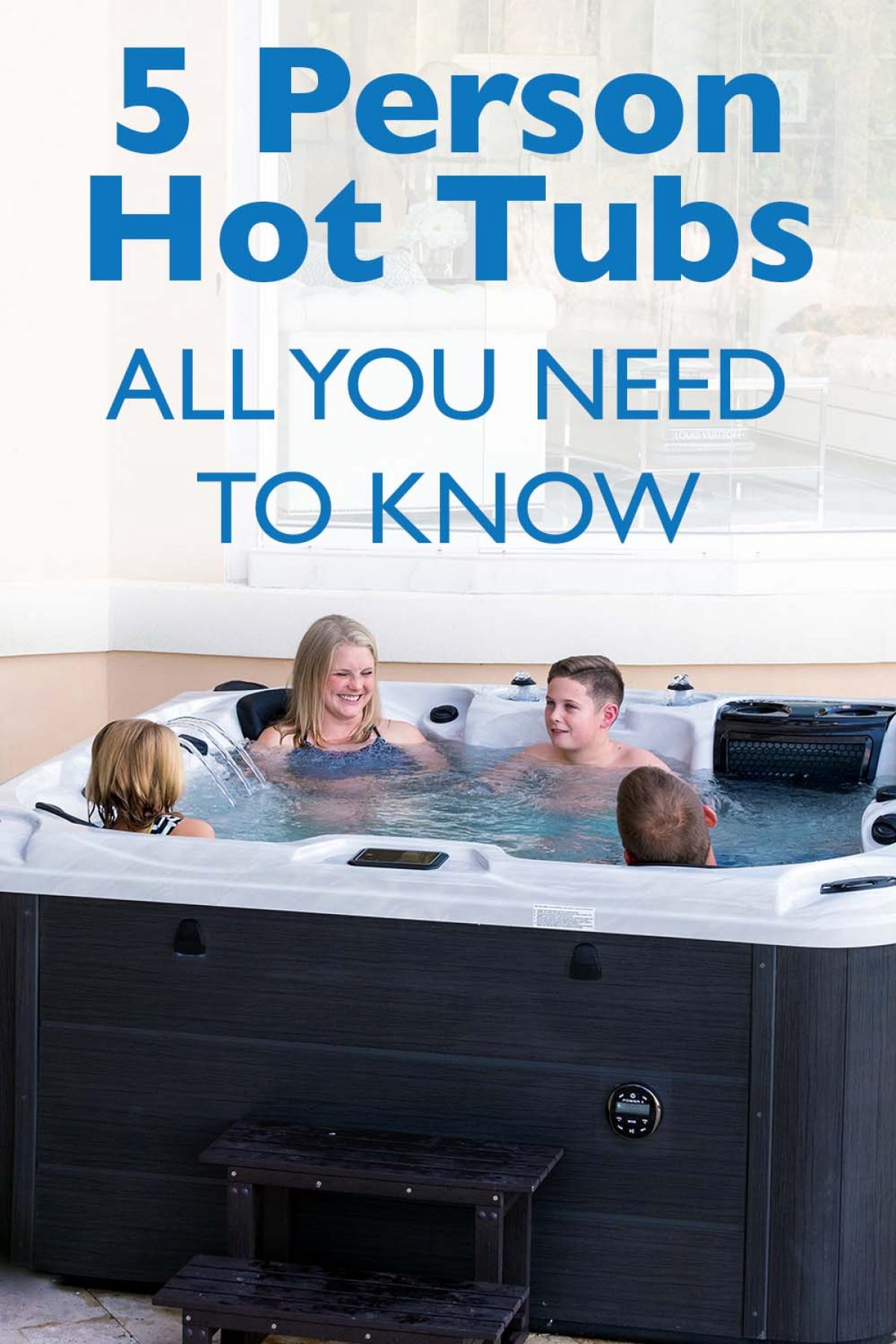Hydrotherapy and hot tubs provide numerous benefits for physical and mental well-being. The warm water and jets in hot tubs offer relaxation, stress relief, and improved circulation.
Additionally, hydrotherapy can alleviate muscle and joint pain, relieve symptoms of arthritis, and aid in post-exercise recovery. Hot tubs also serve as a social and recreational space, promoting quality time with friends and family. Overall, hydrotherapy and hot tubs offer a therapeutic experience that promotes overall health and wellness.
Understanding Hydrotherapy
Hydrotherapy is a beneficial treatment that uses hot tubs to promote relaxation and healing. Discover the advantages and the science behind this popular therapy.
What Is Hydrotherapy?
- Hydrotherapy is a therapeutic treatment that uses water to promote healing and provide various health benefits.
- It involves immersing the body in water or applying water pressure to specific areas to alleviate symptoms and improve overall well-being.
The History And Origins Of Hydrotherapy:
- Hydrotherapy has roots dating back to ancient civilizations such as the Egyptians, Greeks, and Romans, who recognized the healing properties of water.
- The practice gained popularity during the 18th and 19th centuries, with the development of specialized hydrotherapy facilities known as “water cure” establishments.
How Hydrotherapy Works:
- Hydrotherapy works by harnessing the physical properties of water, including temperature, pressure, and buoyancy, to stimulate the body’s natural healing mechanisms.
- When immersed in warm water, blood vessels expand, increasing blood flow and promoting relaxation.
- Water pressure and hydrostatic forces can reduce swelling and inflammation, relieve muscle tension, and improve circulation.
- Buoyancy allows for gentle exercise with reduced joint impact and improved range of motion.
The Benefits Of Hydrotherapy:
- Alleviates chronic pain: Hydrotherapy can provide relief for conditions such as arthritis, fibromyalgia, and back pain by reducing inflammation, promoting relaxation, and stimulating blood flow.
- Enhances muscle recovery: Hot tubs and hydrotherapy can help reduce muscle soreness and accelerate recovery after intense workouts or physical activities.
- Improves sleep: The relaxation induced by hydrotherapy can promote better sleep and alleviate insomnia.
- Manages stress and anxiety: Soaking in a hot tub can help reduce stress levels, promote relaxation, and enhance mental well-being.
- Boosts immune system: Regular hydrotherapy sessions have been shown to strengthen the immune system, improving overall health and reducing the frequency of illness.
- Facilitates detoxification: Sweating induced by the heat in hot tubs can help eliminate toxins from the body through the skin.
- Enhances cardiovascular health: Hydrotherapy can improve blood circulation, lower blood pressure, and reduce the risk of cardiovascular diseases.
- Promotes skin health: The warm water and steam of hydrotherapy can moisturize the skin, improve its appearance, and relieve skin conditions such as eczema and psoriasis.
Remember to consult with a healthcare professional before starting any hydrotherapy treatment, as it may not be suitable for everyone. Enjoy the relaxing and rejuvenating benefits of hydrotherapy, and experience improved physical and mental well-being.
Exploring Hot Tubs
Discover the many benefits of hydrotherapy with hot tubs. Ease muscle tension, reduce stress, and improve circulation for a rejuvenating experience. Explore the world of hot tubs and enhance your well-being.
Hot tubs offer a luxurious and relaxing retreat right in the comfort of your own backyard. Whether you’re looking to unwind after a long day or enjoy a social gathering with friends and family, hot tubs provide the perfect setting.
In this section, we will explore the different types of hot tubs available, how to choose the right one for your needs, proper installation and maintenance, as well as important safety considerations.
The Different Types Of Hot Tubs Available:
- Portable hot tubs: These are self-contained and can be easily moved whenever needed. They come in a variety of sizes, shapes, and colors, allowing you to find the perfect fit for your space.
- In-ground hot tubs: For a permanent fixture, in-ground hot tubs are a popular choice. They require professional installation and are integrated seamlessly into your outdoor landscape.
- Inflatable hot tubs: If you’re looking for a more budget-friendly option or temporary solution, inflatable hot tubs are a great choice. They can be quickly set up and taken down, making them ideal for those who move frequently or have limited space.
- Swim spas: Combining the benefits of a hot tub and a swimming pool, swim spas are a versatile option for those who enjoy both relaxation and exercise. With adjustable swim currents, you can swim against a gentle current or create a powerful workout.
Choosing The Right Hot Tub For Your Needs:
- Consider your space: Measure the area where you plan to install the hot tub to ensure it fits comfortably. Take into account any access restrictions or potential obstacles.
- Capacity: Determine how many people you want the hot tub to accommodate. Think about whether you will use it primarily for yourself or for entertaining guests.
- Features: Decide on the features that are most important to you. This might include jets for hydrotherapy, LED lighting, built-in sound systems, or energy-efficient options.
- Budget: Set a realistic budget and stick to it. Hot tub prices can vary greatly, so understanding your financial limitations will help guide your decision-making process.
Proper Installation And Maintenance Of Hot Tubs:
- Installation: Follow the manufacturer’s instructions or hire a professional to ensure proper installation. This will help prevent any future issues and guarantee optimal performance.
- Water chemistry: Regularly test the water chemistry to maintain a clean and balanced environment. This includes monitoring pH, alkalinity, and sanitizer levels. Refer to the owner’s manual for specific instructions on chemical usage.
- Filtration: Clean and replace the hot tub filter as recommended by the manufacturer. The filter plays a crucial role in removing impurities and maintaining the water’s clarity.
- Cleaning: Regularly clean the hot tub surfaces, including the shell, cover, and jets. Use approved cleaning products and avoid abrasive materials that may damage the equipment.
Safety Considerations For Hot Tub Use:
- Temperature regulation: Always monitor and maintain the hot tub’s water temperature within safe limits. High temperatures can cause a variety of health risks, particularly for children and individuals with underlying medical conditions.
- Supervision: Never leave children unattended in or around a hot tub. Accidents can happen quickly, so it’s essential to remain vigilant and designate a responsible adult to supervise.
- Safe entry and exit: Ensure there are secure handrails or steps for easy and safe entry into the hot tub. Slip-resistant pathways and surfaces around the hot tub area can also help prevent accidents.
- Hydration: Remember to stay hydrated while using the hot tub. The warm water can cause dehydration, so have water readily available and limit alcohol consumption, as it can further dehydrate the body.
By exploring the various types of hot tubs, considering your needs when choosing one, properly installing and maintaining it, and adhering to important safety measures, you can enjoy the relaxation and therapeutic benefits of hydrotherapy in the comfort of your own home.
The Power Of Relaxation
Discover the incredible benefits of hydrotherapy and hot tubs for ultimate relaxation. From soothing sore muscles to relieving stress, immerse yourself in the power of relaxation with these rejuvenating treatments.
The Link Between Hydrotherapy And Relaxation
Hydrotherapy, the therapeutic use of water, has long been recognized for its ability to promote relaxation and overall well-being. When it comes to hot tubs, a popular form of hydrotherapy, the connection to relaxation is undeniable. Here are a few key points highlighting the link between hydrotherapy and relaxation:
- Immersion in warm water: Submerging your body in warm water triggers a natural relaxation response. The warmth helps to relax your muscles, relieve tension, and reduce stress levels.
- Buoyancy effect: The buoyancy of water reduces the effects of gravity on your body, creating a weightless sensation. This eliminates the pressure on joints and muscles, allowing you to experience a deep sense of relaxation.
- Massage jets: Hot tubs are equipped with powerful massage jets that can be adjusted to target specific areas of your body. The pulsating water massages your muscles, releases tension, and increases blood flow, promoting an overall feeling of relaxation.
- Serene environment: Hot tubs provide a peaceful and serene environment for relaxation. Whether you choose to enjoy the warm water alone or with loved ones, the tranquil atmosphere helps to calm your mind and lets you unwind from the stresses of daily life.
How Hot Tubs Promote Relaxation
Hot tubs offer a range of features and benefits that actively promote relaxation. Here are some ways in which hot tubs create a relaxing experience:
- Warm water temperature: Hot tubs maintain a consistent warm water temperature, typically around 100-104 degrees Fahrenheit. This optimal temperature helps to increase blood flow, soothe your muscles, and induce a state of relaxation.
- Hydrotherapy jets: Hot tubs are equipped with strategically positioned jets that release a steady stream of warm water. These massage jets provide a soothing and invigorating experience, relieving muscle tension and promoting relaxation.
- Customization options: Most hot tubs allow you to customize your experience by adjusting the water temperature, jet intensity, and even adding aromatherapy scents. This versatility ensures that you can create the perfect environment for relaxation based on your preferences.
- Privacy: Many hot tubs are designed with privacy in mind, offering features such as built-in seating options or privacy screens. This allows you to soak in a calm and serene environment without any distractions, further enhancing the relaxation process.
The Physical And Mental Health Benefits Of Relaxation
Relaxation not only feels good, but it also offers a multitude of benefits for both your physical and mental well-being. Here are some of the positive effects that relaxation can have on your health:
- Reduced muscle tension: Relaxing in a hot tub can help alleviate muscle tension, release knots, and reduce stiffness. This can lead to improved flexibility and range of motion, as well as fewer aches and pains.
- Lower stress levels: Relaxation stimulates the release of endorphins, your body’s natural “feel-good” hormones. This can help reduce stress levels, improve your mood, and promote a sense of overall well-being.
- Improved sleep: When you relax in a hot tub, your body temperature naturally rises. As your body cools down after leaving the tub, it signals to your brain that it’s time to sleep. This can help enhance the quality of your sleep, leading to better rest and rejuvenation.
- Enhanced mental clarity: Taking time to relax and unwind can have a profound impact on your mental clarity and focus. By reducing stress and promoting relaxation, you can experience improved cognitive function and better decision-making abilities.
Tips For Maximizing Relaxation In Your Hot Tub
To make the most of your hot tub relaxation sessions, here are a few tips to consider:
- Create a serene setting: Set the mood by adding soft lighting, calming music, or even scented candles around your hot tub. This will further enhance the relaxation experience and create a tranquil atmosphere.
- Practice deep breathing: While soaking in the hot tub, take slow and deep breaths, focusing on filling your lungs and exhaling fully. This deep breathing technique can help calm your mind, reduce stress, and deepen the relaxation effect.
- Incorporate hydrotherapy exercises: Hot tubs provide a unique opportunity to combine relaxation with gentle exercises. Try stretching, gentle water aerobics, or even floating exercises to further enhance the benefits of hydrotherapy.
- Set aside dedicated relaxation time: Make a habit of scheduling regular hot tub relaxation sessions. By committing to dedicated relaxation time, you prioritize your well-being and create a consistent opportunity for relaxation.
Remember, relaxation is not a luxury but an essential part of maintaining your overall health and well-being. So, take the time to unwind and enjoy the powerful benefits of hydrotherapy and hot tub relaxation.

Credit: www.wayfair.com
Frequently Asked Questions Of Hydrotherapy And Hot Tubs: All You Wanted To Know
What Is The Difference Between Hydrotherapy And Hot Tub?
Hydrotherapy is a therapeutic treatment involving water, while a hot tub is a heated water-filled relaxation device.
How Long Should You Stay In A Hydrotherapy Tub?
The recommended duration for a hydrotherapy tub session is typically around 15-30 minutes.
Can You Do Hydrotherapy In A Hot Tub?
Yes, hydrotherapy can be done in a hot tub. It offers warm water therapy for relaxation and pain relief.
What Are The Benefits Of Hydrotherapy Hot Tubs?
Hydrotherapy hot tubs offer numerous benefits, such as relaxation, pain relief, improved circulation, and stress reduction.
How Does Hydrotherapy In Hot Tubs Benefit The Body?
Hydrotherapy in hot tubs helps relax muscles, improve blood circulation, relieve pain, and reduce stress.
What Are The Health Benefits Of Using Hot Tubs?
Using hot tubs can promote better sleep, ease joint pain, reduce muscle tension, relieve headaches, and improve overall well-being.
Are Hot Tubs Suitable For People With Arthritis?
Yes, hot tubs can provide relief for arthritis sufferers by reducing joint stiffness and inflammation, and improving flexibility and range of motion.
Can Hydrotherapy In Hot Tubs Help With Stress Management?
Absolutely! The combination of warm water and jets in hot tubs can help release endorphins and promote relaxation, reducing stress and anxiety.
What Is The Recommended Water Temperature For Hydrotherapy In Hot Tubs?
The ideal temperature for hydrotherapy in hot tubs is between 98°F and 104°F (37°C and 40°C). However, it’s always recommended to consult with a healthcare professional.
How Often Should I Use A Hot Tub For Hydrotherapy Benefits?
To experience the full benefits of hydrotherapy, it’s recommended to use a hot tub for 15-30 minutes, 3-4 times a week. However, individual needs may vary, so it’s best to listen to your body.
Conclusion
Hydrotherapy and hot tubs offer a multitude of benefits for physical and mental well-being. From relieving muscle tension to promoting relaxation and reducing stress, these therapeutic activities have become increasingly popular. The warm water, combined with targeted jet massages, can alleviate aches and pains, improve blood circulation, and rejuvenate the body.
Additionally, hydrotherapy can help with conditions such as arthritis, fibromyalgia, and sleep disorders. Incorporating hydrotherapy into your lifestyle can be a simple yet effective way to enhance your overall health. The convenience of having a hot tub at home allows for frequent and easy access to its healing benefits.
Whether you choose to unwind after a long day or engage in hydrotherapy as part of your rehabilitation routine, the advantages are undeniable. If you’re considering investing in a hot tub, it’s essential to research and choose a model that fits your needs and budget.
Regular maintenance and proper care will ensure its longevity and maximize the therapeutic effects. So, immerse yourself in the world of hydrotherapy and enjoy the numerous advantages it can offer your physical and mental well-being.


